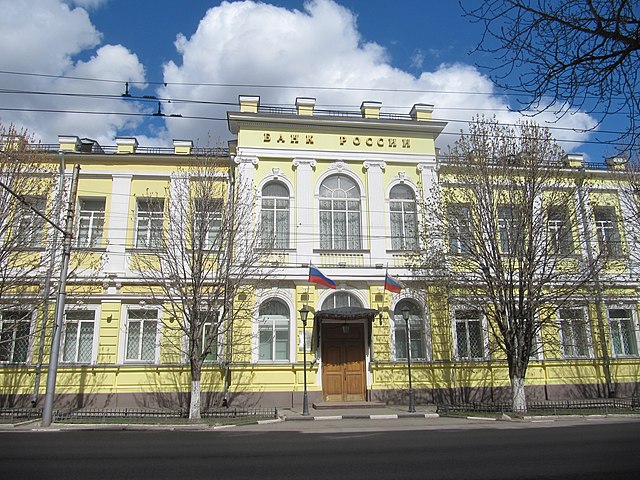Russia’s digital ruble will affect the commercial banking sector’s liquidity, experts have claimed as the nation prepares for a CBDC rollout.
Per the media outlet Comnews, Russian financial industry experts expressed mixed feelings about the CBDC at a banking conference.
Tatyana Rozhdestvenskaya, Professor of the Department of Financial Law at the Kutafin Moscow State Law University, said that it would be “impossible to issue loans […] or accrue interest” using the digital ruble. She added:
“[The Russian legal system] has accepted the digital ruble as a form of non-cash money. So we must reconsider the laws surrounding the coin.”
🇪🇺 The European Union revealed details on their latest package of sanctions against Russia, which includes provisions on crypto, in a newly released Q&A this week.#CryptoNewshttps://t.co/gsSnsdRGma
— Cryptonews.com (@cryptonews) December 19, 2023
Liquidity Hit in Store for Russian Banks?
Another academic from the same university, Irina Mikheeva, said banks would certainly be impacted. She explained:
“The digital ruble […] can only be used for settlements. […] The Central Bank recognizes the liquidity limitations and is ready to fully compensate [banks] for this. It has all the tools to do this.”
However, Mikheeva warned that while ongoing pilots would not affect commercial banks, a national rollout would hit the sector. She said:
“The introduction of the digital ruble pilot will not significantly affect the liquidity of banks. But if there is a widespread universal [rollout], this will trigger a significant […] decrease in liquidity, since commercial banks will have to turn to the Central Bank.”
Maxim Bashkatov, the legal development chief at the Center for Strategic Research suggested adoption may need to be incentivized to win over the general public. Bashkatov said:
“At present, one cannot force an employee to receive their salary in digital rubles. Most likely, people will only request payment in [CBDC] if they are offered a bonus for using the coin. However, so far there are no such bonuses in place. And these are unlikely to be offered in the near future.”
Bashkatov added that as there are “no categories of payments that can only be made in digital rubles,” adoption progress would be “wilful and made in small quantities.”
Russian commercial banks have previously expressed their anxiety about the digital ruble, and say that their customers are “wary” of the coin.”
Central Bank: Focused on Cross-border CBDC Adoption?
The Central Bank, however, appears to be focusing its efforts on using the coin in the trade and commerce sectors.
The bank’s Deputy Director of the Legal Affairs Andrey Borisenko told attendees that “cross-border digital fiat transfers” would not affect international exchange rates.
The bank has stepped up its interest in using the CBDC in cross-border trade.
And it may look to launch pilots with the likes of Belarus and Kazakhstan.
Both nations are closely allied with Moscow, and have launched fast-tracked CBDC pilots with mention of “cross-border” functions.

Digital Ruble Progress ‘Too Slow?’
Meanwhile, Russia’s Business-Magazine reported that the Central Bank could launch the second phase of its CBDC pilot before the year is out. The media outlet wrote:
“The Central Bank expects that by the end of this year, the list of pilot participants will be expanded, both in the case of citizens and companies.”
The outlet added that in 2024, the bank will look to add dynamic QR code functions to digital ruble transactions. It also wants to pilot business-to-business transfers.
🇷🇺 Russia Poised to Let Miners Sell Coins Abroad as ‘Exports’
Russian industrial miners may be given the right to sell crypto assets as “export products,” the nation’s finance ministry said.#CryptoNews #Russiahttps://t.co/nsoOutjuTR
— Cryptonews.com (@cryptonews) December 14, 2023
However, some bank officials are unhappy with the State Duma’s role in the CBDC pilot.
The Deputy Chairman of the Central Bank Alexey Guznov said that Russia had “made little progress in regulating digital assets and digital currencies.”
Guznov said that Moscow needed to do more to legislate about “the possibility of using [CBDCs and other digital assets] as a means of payment in cross-border payments.”
